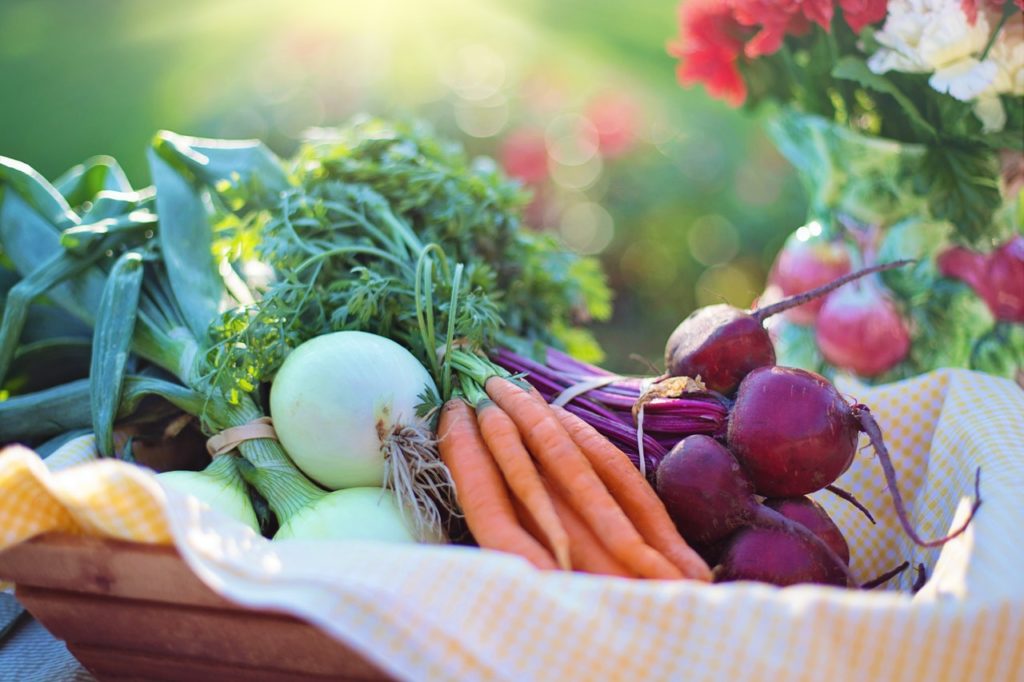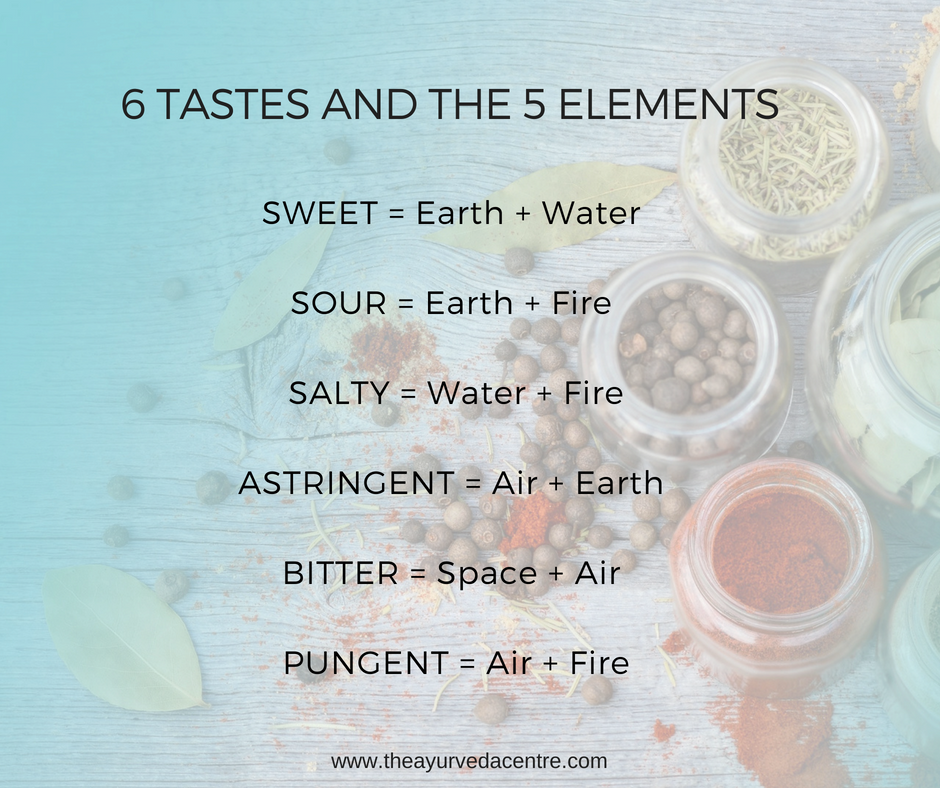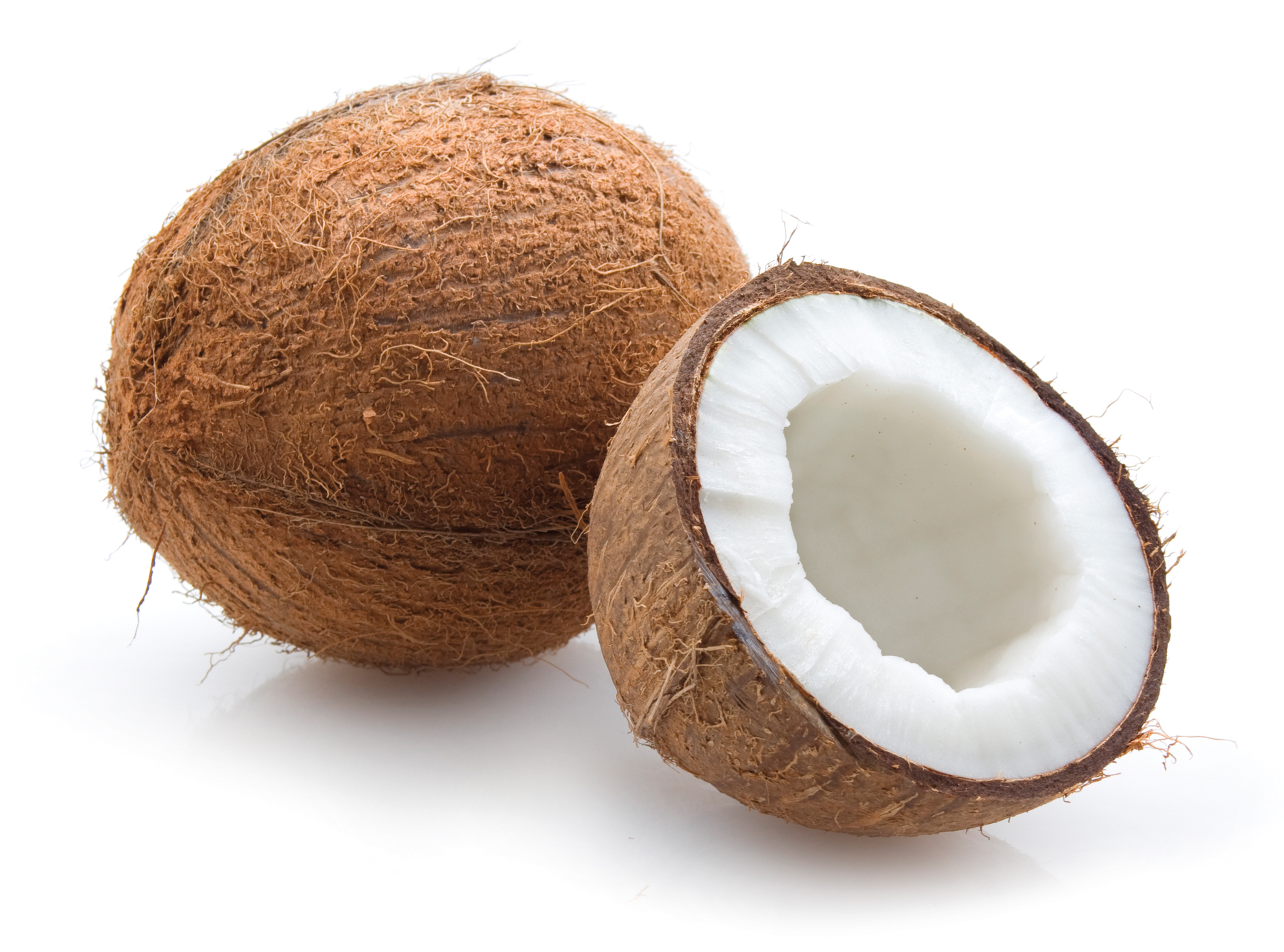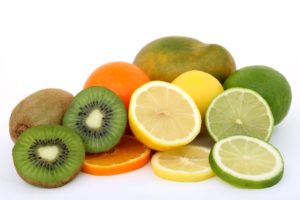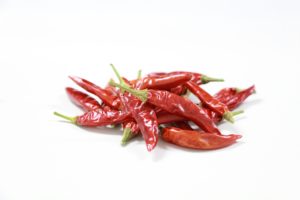According to Ayurveda, six tastes must be included in our diet to maintain health and be free of disease. Ayurveda identifies the six tastes as sweet, sour, salty, astringent, bitter and pungent.
The six tastes are derived from the five fundamental elements i.e. earth, water, fire, space and air. As such, each taste possesses different healing properties. So our diet should always include all 6 tastes to improve our health and wellbeing.
The six tastes are derived from the five elements, which gives them unique nutritional properties
The unique properties give what the body needs for proper functioning. The six tastes also have the function of nourishing the mind and providing satisfaction. This is essential! Do you remember how you feel after eating a tasty meal such as a traditional Indian curry, a Vietnamese dish or a selection of Mediterannean mezze? You do not need to eat much of it, and most likely you do not feel like eating desert at all! But how do you feel half an hour after eating a burger with fries, a coffee and croissant or a vegan quinoa salad? Are you truly satisfied? For how long?
Here’s a summary of the 6 tastes, their elemental composition and general properties.
Sweet = Earth + Water – generally cooling, oily and heavy
Sour = Earth + Fire – generally heating, light and liquid
Salty = Water + Fire – generally heating, heavy and oily
Astringent = Air + Earth – generally cooling, drying and heavy
Bitter = Space + Air – generally cooling, light and dry
Pungent = Air + Fire – generally heating, dry, and light
Each taste have different properties. They can be used as a medicine if used with an understanding of the individual constitution and imbalance (prakruti/vikruti). Unfortunately our western diet has become focussed on three taste only: sweet, sour and salty. Therefore we lack satisfaction of the senses and nourishment of the tissues. We do not know when to stop a meal as we rarely feel satisfy and as a result we snack in between meals. Some of us drink coffee to try to satisfy the missing bitter taste in our daily lives. But coffee is, unfortunately, a stimulant.
Each taste either balances or aggravates your constitution
The three doshas, our body-mind constitutions i.e.Vata, Pitta and Kapha, are also a unique combination of the five elements. You can read this article to refresh your memory the doshas. As we apply the Ayurvedic principle of healing according to which “like increase like” and “opposite decreases each other”, we can understand how the various tastes affect each dosha and therefore your body and mind.
SWEET
The sweet taste is formed predominantly by earth and water elements. It is nourishing, strengthening and grounding. It is good for the complexion, hairs, prolongs life and increase Ojas (immunity). In excess, the sweet taste is congesting, suppresses appetite, creates obesity, diabetes and promotes laziness. The sweet taste therefore naturally balances vata dosha which is formed predominantly by the air and space elements and pitta dosha formed by water and fire elements. It increases kapha dosha which has similar elements as the sweet taste as it is also formed predominantly by water and earth elements.
SOUR
The sour taste stimulates (agni) appetite, energizes the body and mind, is good for the heart, causes moistening. However, it is heaty, which can cause acidity, produce burning sensations, blindness, looseness of the body and be toxic for the blood. It balances vata dosha and increase kapha and pitta doshas.
SALTY
The salty taste is laxative, promotes growth, aids with digestion, lubricates and removes rigidity. In excess it will create heat in the body, baldness, premature greying of hair, wrinkles and water retention. It balances vata dosha and increases kapha and pitta doshas.
ASTRINGENT
The astringent taste is cooling, cleanses the blood, dries up moisture and fat. It is water absorbant creates dryness of the mouth, throat and the body resulting in emaciation, loss of virility, bloating, gas and constipation. It balances pitta and kapha doshas and increase vata dosha.
BITTER
The bitter taste improves detoxification, cures anorexia and worms or bacteria, relieves thirst, reduces fat and relieves inflammation, fever, nausea and burning sensations. It dries up moisture from the body and is cold. Therefore it balances pitta and kapha doshas and aggravates vata dosha.
PUNGENT
The pungent taste stimulates digestion, increases hunger, clears the channels from mucus, cures diseases of the throat, reduces swelling, dilates the channels and therefore aids circulation and elimination of waste products. In excess, it causes thirst, depletion of reproductive system and fainting. It balances kapha dosha and increases vata and pitta doshas.
You must choose your foods according to their taste and healing properties.
Food, being a part of the universe, is also made of a combination of the five elements. Each food or ingredient has specific tastes and healing properties. Here are some example of foods in each taste category:
Sweet taste
Most grains like wheat rice barley, corn.
Dairy products like ghee, cream, butter.
Sweet fruits like coconuts, dates, figs, grapes, pears, mangoes and dried fruits.
Cooked vegetables like potato, sweet potato, carrot, beetroot.
Sugar in any form—raw, refined, brown, white, molasses, maple syrup, sugar cane juice, etc.
Sour taste
Sour fruits like lemons, limes, grapefruits, oranges, pineapples, passion fruit, sour cherries.
Sour milk products like yogurt, cheese, sour cream.
Fermented substances like wine, vinegar, soy sauce.
Salty taste
Sea salt, rock salt
Some fishes like sardines or herring
Sauces like soya sauce
Some cheeses and cured meat
Any food to which salt has been added (pickles, nuts, chips)
Bitter taste
Green leafy vegetables like spinach, green cabbage, brussel sprouts, kale, chard
Spices like fenugreek, turmeric
Coffee
Aloe vera
Pungent taste
Hot spices like chili, black pepper, cayenne, mustard seeds, ginger, cumin, cloves, cardamom, garlic, etc.
Mild spices like anise, cinnamon, and “fresh” herbs like oregano, thyme, mint, etc.
Raw vegetables like radish, onion, ginger and garlic.
Wasabi, mustard.
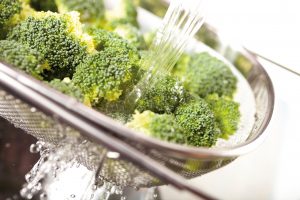
Astringent taste
Turmeric, honey, walnuts.
Legumes i.e. beans, lentils, chickpeas.
Vegetables like sprouts, lettuce, brocoli, green leafy vegetables, most raw vegetables.
Fruits like pomegranate, green grapes, most unripe fruits.
You do not have to memorise each food taste! The best way is to know is through practice. Every time you eat something, pay attention to the taste is triggers in your mouth and then the reaction in your body. Look out for heating/cooling sensations, light/heavy, drying/moisturising, calm/stimulating etc. See how you feel, listen to your body and decide what works best for you through trial and error. You can refer to the six tastes and dosha paragraph and see it corresponds. Take note that not all sweet taste are cooling e.g. honey and not all sour taste heating e.g. lime. Some foods do not stick to the general rules. In doubt and if you have a special condition or disease, we recommend that you visit a qualified Ayurvedic practitioner.
In essence what you should remember about the six tastes, is that:
1/ You should first understand your unique constitution and imbalance (prakruti/vikruti)
2/ Then only integrate all six taste in your diet in the most appropriate combination.
Bon appétit!
“The food you eat can be either the safest and most powerful form of medicine or the slowest form of poison.”
Ann Wigmore
Elena Beurdeley-Kuerten
Ayurvedic Consultant – DipALN, DipAMT (Ayurveda)
The Ayurveda Centre – Athens
www.theayurvedacentre.com
